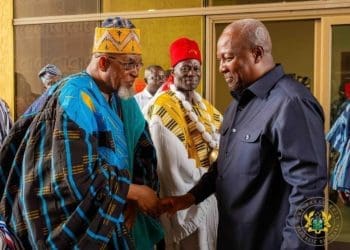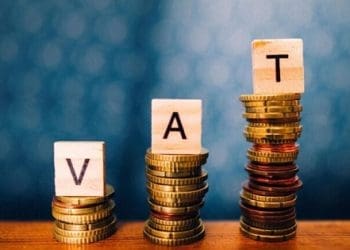The World Bank Board of Executive Directors has approved a $360 million facility for Ghana, reinforcing international confidence in the country’s economic recovery plan and commitment to deep structural reforms.
The funding, secured through the International Development Association (IDA), is part of Ghana’s broader push to stabilise its economy, strengthen resilience, and promote private-sector-led growth.
The approval comes as Ghana’s economy shows signs of revival, marked by a Fitch Ratings upgrade and a recent appreciation of the cedi against major foreign currencies, particularly the US dollar.
Second in series of 3 development operations
The $360 million is the second tranche under the Resilient Recovery Development Policy Financing series, which totals $900 million over three operations.
This latest support builds on earlier reform efforts carried out in coordination with the International Monetary Fund (IMF) and previous World Bank development policy initiatives.
According to the World Bank, the funding is targeted at deepening fiscal and debt sustainability, promoting financial sector stability, supporting energy sector reforms, and strengthening Ghana’s social and climate resilience framework.
Fiscal discipline, private-sector growth
A key focus of the new operation is to help Ghana enhance fiscal discipline and improve domestic revenue mobilisation.
By tightening public financial management, the government aims to create a stable macroeconomic environment that encourages private investment and innovation.
The programme also aims to shift the economic growth model from government-led interventions to a more dynamic, private-sector-driven economy that creates sustainable employment opportunities.
Energy sector reforms and climate considerations
The policy financing package includes support for reforming the energy sector, which remains a longstanding burden on the country’s fiscal health.
Measures include improving operational efficiency, financial sustainability of state-owned utilities, and encouraging investment in renewable energy sources.
Additionally, the package will help integrate climate resilience into public policy, in line with Ghana’s broader sustainable development goals.
This involves embedding environmental considerations into budgeting and public investment decisions to mitigate the impact of climate change on vulnerable communities.
Finance minister credits IMF Programme for progress
Minister for Finance, Dr. Cassiel Ato Baah Forson, welcomed the funding, attributing the World Bank’s approval to Ghana’s demonstrated progress under the IMF-supported economic reform programme and the ongoing Development Policy Operations (DPO) series.
“This financial assistance reflects the growing international trust in our efforts,” Dr. Forson stated.
“It will help us consolidate macroeconomic gains, strengthen investor confidence, and lay a solid foundation for inclusive and sustained economic growth.”
He emphasised that the measures supported by the DPO will reinforce fiscal discipline and build a more resilient economy capable of absorbing future shocks.
World Bank stresses urgency of reforms
Robert Taliercio, World Bank Division Director for Ghana, Liberia, and Sierra Leone, underscored the importance of the reforms. “Entrenching fiscal and debt sustainability, improving the business environment, addressing deep-rooted challenges in the energy sector, and protecting the vulnerable continue to be urgent priorities,” he said.
Mr. Taliercio added that the approved financing is part of a long-term commitment by the World Bank to support Ghana’s reform agenda.
“We are committed to supporting Ghana not just in recovery, but in building a stronger, more resilient economy that benefits all citizens.”
Broad support for national transformation
The Resilient Recovery Development Policy Operation touches on four critical pillars: fiscal sustainability, financial sector stability, energy sector reform, and social and climate resilience.
These areas are widely regarded as essential to Ghana’s long-term development.
A major ambition of the programme is to revitalise Ghana’s domestic private sector, reduce dependence on government-led economic activity, and create a competitive business environment capable of attracting both local and foreign investment.
The World Bank’s continued engagement offers Ghana a strategic advantage in its quest to not only stabilise the economy but to transform it into one that is inclusive, sustainable, and more shock-resistant.












